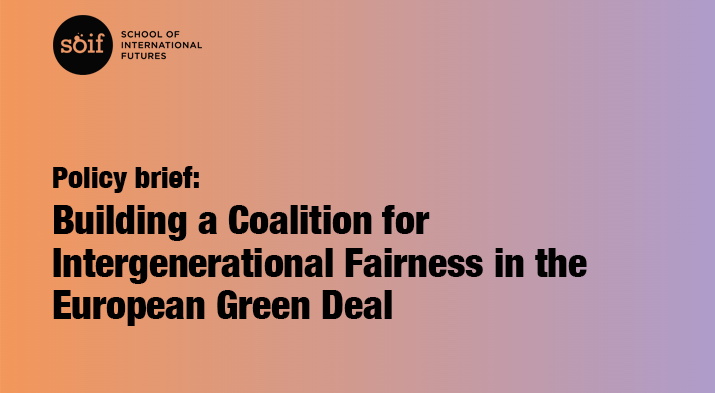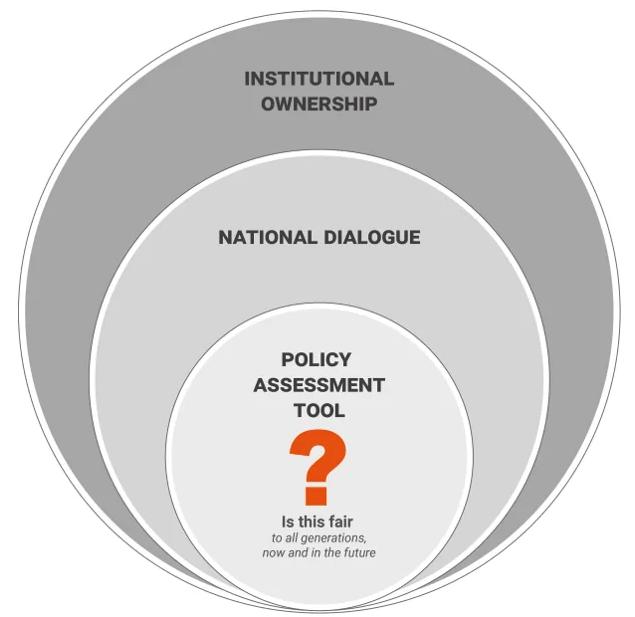
We are excited to launch the publication of Building a Coalition for Intergenerational Fairness in the European Green Deal – a policy brief about building intergenerational solidarity around the Green Deal and the climate transition.
We worked in close collaboration with the Open Society European Policy Institute and we appreciate the contribution of everyone who participated in the roundtable meetings and interviews.
Integrating intergenerational fairness
The brief identified three core recommendations in order to integrate the principle of intergenerational fairness into institutions and decision-making processes:
- appointing an institutional champion for intergenerational fairness in the EU;
- integrating explicit consideration and assessment of intergenerational fairness into the European semester plans, Next Generation Funds dispute, and the Conference for the Future of Europe;
- investing in building a community and knowledge resource to support interested citizens, businesses, politicians and civil societies across the EU and beyond.

The intergenerational assessment
We have been working with policy-makers since 2018 on engaging with intergenerational fairness as an issue. This led to a framework for intergenerational policy assessment, developed with the Calouste Gulbenkian Foundation. The framework is based on three key elements:
- A policy assessment tool guides an assessor through a flexible five-step process to determine whether a given policy is intergenerationally fair.
- The national dialogue that ensures policy assessment is based on citizen views of what is fair and desirable. Explores answers to what is fair for future generations, and the trade-offs between the present and future. This
- Institutional ownership that oversees resourcing, commissioning, reporting and monitoring and evaluation of the policy assessments and national dialogue. This includes engaging with the media, citizens, politicians, civil service and other assessment bodies.
Way forward
In the UK the Social Mobility Commission project has used it to pilot Social Mobility assessments in policy design, development and scrutiny. The framework is the basis for the FutureCheck pilot that has carried out assessments of five pieces of legislation, including the Police, Crime, Sentencing and Courts Bill, the Environmental Bill and the Telecommunications Bill. Read more about this on the APPG Future Generation’s blog here.
Most recently, the Portuguese President, Marcelo Rebelo de Sousa has committed to championing intergenerational fairness and future generations. SOIF’s Intergenerational Team, along with Gulbenkian Foundation, trained the President’s staff in using Intergenerational Fairness methods, so they can use the assessment process as part of their legislative scrutiny.
You can sign up for the Intergenerational Fairness Observatory newsletter.
And if you want to join our networking sessions for intergenerational practitioners or learn more about the framework, click here.
This blog is a shorter version of a longer article written by our colleague, Darja Vrscaj published on Bertelsmann Stiftung.
